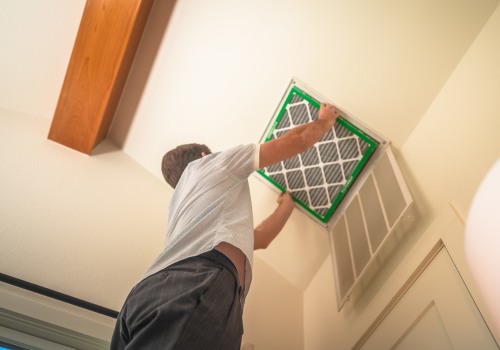Replacing an air filter in a ventilation system is an essential task that should not be neglected. Generally, most air filter manufacturers and HVAC companies suggest changing the air filter every 90 days or 3 months. However, this can differ depending on the location of your home, if you have pets, and how old the system and equipment are. If you have pets at home, it is recommended to change the filter every 60 days or every 2 months.
For households with multiple pets or people with allergies or respiratory conditions, it is best to change the filter every 20 to 45 days. Vacation homes or vacant homes that don't get much use usually wait to change the filters every 9 to 12 months. The more you use your home, the more often you should change your air filter. When it comes time to buy new air filters for your HVAC system, there are a few things to consider.
Filters with a MERV rating of 16 or lower are considered suitable for air conditioning systems for residential, commercial and general hospital use. Pleated filters are often better than non-pleated filters, as they allow a larger surface area to accumulate dust, pet hair and other debris that floats in the air. These air filters act as barriers to prevent contaminants from entering the HVAC system or from circulating through the air. Replacing the air filter is important because it can extend the life of the furnace, reduce energy bills and improve indoor air quality. The oven air filter is located in the fan, but the location of the fan is different depending on the furnace installation.
When you live in an enclosed space with limited outdoor space, indoor indoor air quality can be less than exemplary. If you've never used air filters for apartments before, this guide will help you learn all the basics so you can breathe a little more calmly. It's important to note that there are high-efficiency filters that are designed to filter out small particles of bacteria, mold and mildew, but standard MERV 8-11 filters only block larger particles of dust, dirt and hair. Regardless of who is in charge of the change, apartment air filters must be replaced periodically to maximize air quality and the efficiency of air conditioning systems. When you can replace the air filters in your home, you'll be taking steps towards cleaner air in every room. When replacing an air filter in a ventilation system, it's important to follow certain steps. First, turn off power to your HVAC system before removing the old filter.
Then remove the old filter from its housing and discard it properly. Next, measure your new filter and make sure it fits properly into its housing. Finally, insert your new filter into its housing and turn on power to your HVAC system. It's also important to note that some HVAC systems require special filters that need to be changed more often than standard filters. If you're unsure about what type of filter your system requires or how often it needs to be changed, contact a professional HVAC technician for advice. Replacing an air filter in a ventilation system is an important task that should not be overlooked.
Regularly changing your air filter will help keep your HVAC system running efficiently and improve indoor air quality. By following these steps and using high-efficiency filters when necessary, you can ensure that your home's ventilation system is working properly.







